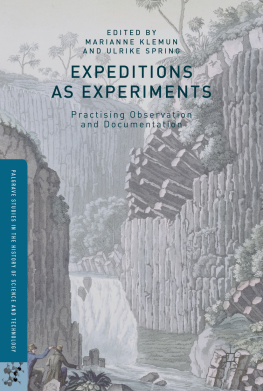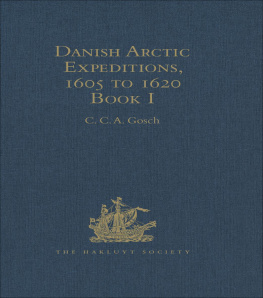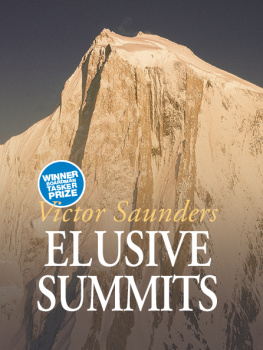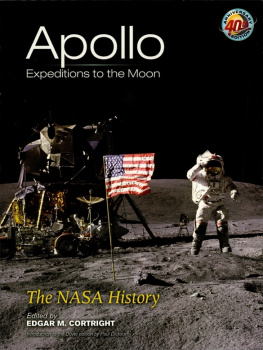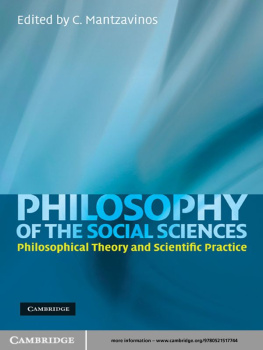Introduction
For centuries exploratory expeditions have played a dominant role in acquiring knowledge about the world. With the rise of modern science they became a central feature of scientific knowledge gathering and investigation. In the nineteenth century the number of scientific expeditions, or, to be more precise, expeditions with a focus on scientific objectives, increased rapidly as a result of growing professionalization and specialization in sciences and the onset of the so-called new imperialism aiming to bring civilization to the non-Western world. provided an essential context. Today as well, scientific expeditions are an indispensable means of gathering knowledge.
There is an abundance of literature on expeditions, ranging from short descriptions to academic tomes. While earlier research focused on the expeditions themselves and incorporated them into national heroic narratives, in recent years, researchers have paid more attention to what happened before and after the actual expeditions, and contextualized them in a global context. The attention focused on the heroic explorer has increasingly been replaced by an interest in the communication processes among the participants, with the local people met during the expedition as well as with the scientific community. If the focus on the explorer prevails, then it tends to be from a critical perspective on his or (more rarely) her role in nation-building and on gender, class, culture and knowledge production. We go one step further, however, and regard the genre of the expedition itself as part of this process of knowledge production: experiments are not just practices executed during expeditions, the act of exploration itself functioned as such an experiment. In other words, the expedition is a specific scientific practice in itself. As several chapters show, it is also a cultural practice and is embedded within its specific cultural, political and social contexts.
Defining Scientific Expeditions
Expeditions may be called enterprises governed by metropolitan centres of calculation. and a model for future enterprises. These famous expeditions still determine, to a great extent, the definition of scientific expeditions and the practices involved in the process of gathering knowledge on these journeys. While we by no means want to dismiss the relevance and exemplary function of these famous expeditions, it is nevertheless vital to consider smaller-scale or less well-known explorations in their own right. They may have modelled themselves on their great predecessors and followed instructions laid out beforehand, yet, each expedition faced different challenges and contexts and had to adapt its practices of observing and collecting accordingly. A focus on expeditions allows us to investigate a variety of knowledge acquisition processes. Moreover, with such a focus we gain more detailed insights into different forms of scientific practices, such as observation, and can investigate to what extent the act of observation is both a result of specific contexts in the field as well as of prepared instructions and of socialization processes in the home base.
Before the twentieth century, many scientific expeditions were carried out by members of Western cultures. Not surprisingly, research on expeditions often focuses on the impact these ventures had on the world order and on the territories explored, for instance in terms of imperial strategies Thus in this volume we pay particular attention to the practices that were chosen and applied, as well as to the way knowledge was produced in dialogue with the visited destination, the discovered or observed objects, and other expedition participants and/or local populations during the expeditions. Nor can the procedures during an expedition be seen separately from its repercussions and eventual legacy. We need to understand the interplay between practices and scientific discourses during the expeditions themselves, and more closely investigate the practices and discourses these expeditions both created and were part of in order to comprehend knowledge production and acquisition.
Exploratory expeditions constitute a form of scientific work that has become widespread since the eighteenth century. They had their heyday as spectacular and heroic endeavours during the nineteenth and early twentieth centuries. They are, as Martin Thomas points out, cultural formations, as distinctive to their epoch as the novel or the photograph. Yet these journeys were diverse in form and content, and definitions of the notion expedition have varied accordingly.
We have identified four dominant thematic clusters in this collection which illustrate this heterogeneity: the expeditions motivations and aims, its structure, the division of work, and its epistemological context, for instance by embarking into the unknown. First, expeditions could pursue different aims, with some placing the focus on geographical exploration or on economic goals with science playing a minor role. Although in this volume we look at the acquisition of scientific knowledge in particular, a clear-cut distinction from other motives is not always possible or useful. Scientific expeditions usually had a strict plan of investigation before they set out, including a set of specific practices that had to be observed during the course of the expedition and a clear idea of the scientific fields they wished to contribute to. The Latin expeditio originates from a military and administrative context and, although the term expedition became common for scientific endeavours and thus deviated from its original meaning, the character of an expedition as the execution or completion of a planned enterprise has survived as one aspect of its multi-layered meaning. The chapters of this volume show the variety of scientific interests that motivated expeditions with their focus on natural history, geology (Teresa Salom Mota), ichthyology (Yuko Takigawa, Kurt Schmutzer), botany (Alexandra Cook, Tanja Hammel, Jan Vandersmissen), zoology (Jan Vandersmissen), helminthology (Kurt Schmutzer), speleology (Johannes Mattes), physical anthropology (Katarina Matiasek), oceanography (Peder Roberts) and geophysics (Ulrike Spring). However, due to the multi-disciplinary character of scientific fields, deviations from these research plans did occur, and were in fact an integral part of scientific research on these expeditions.
Second, expeditions were structured in various ways: they could be of long or short duration, and they could be carried out by a few people or a larger group. The expeditions investigated in this collection range from journeys of solitary travellers, who embarked on short-term expeditions to well-known areas, to the great expeditions lasting several years which aimed to explore hitherto unknown regions of the world or unknown places of nature. This variety of expeditions allows us to tentatively examine to what extent we may speak of common or even standardized scientific practices. It also gives us insights into different contexts in which knowledge was established. But let us reflect on the question of the duration of an expedition. At first sight, one might define the day of departure as an expeditions beginning and, accordingly, the day of return as its ending. However, as the geographers Charles W. Withers and David N. Livingstone point out, expeditions were effectively completed only when the knowledge gathered had been subject to scrutiny by other scholars back home. The scientific community (in its broadest meaning, including the interested public) had to acknowledge the material as scientific and the scholars of the expedition as trustworthy and capable of proper scientific observation and documentation. Similarly, expeditions started long before their actual departure day, and if one were to set a date, it would be the day the idea of the expedition was conceived and articulated for the first time. Peder Roberts reminds us in his chapter that each expedition was not only a singular event but also a process: expeditions built upon previous enterprises and pointed towards future ventures, and at the same time each of them was subject to its own rules depending on circumstances. Scientific expeditions were, in other words, part of specific social, cultural and political contexts, and answered to certain expectations in the way they were structured and performed.

